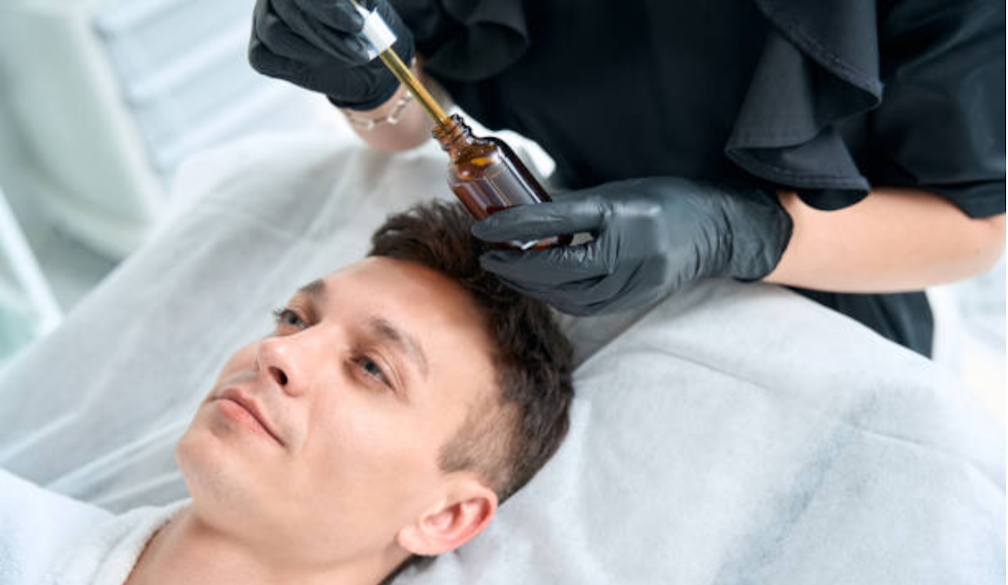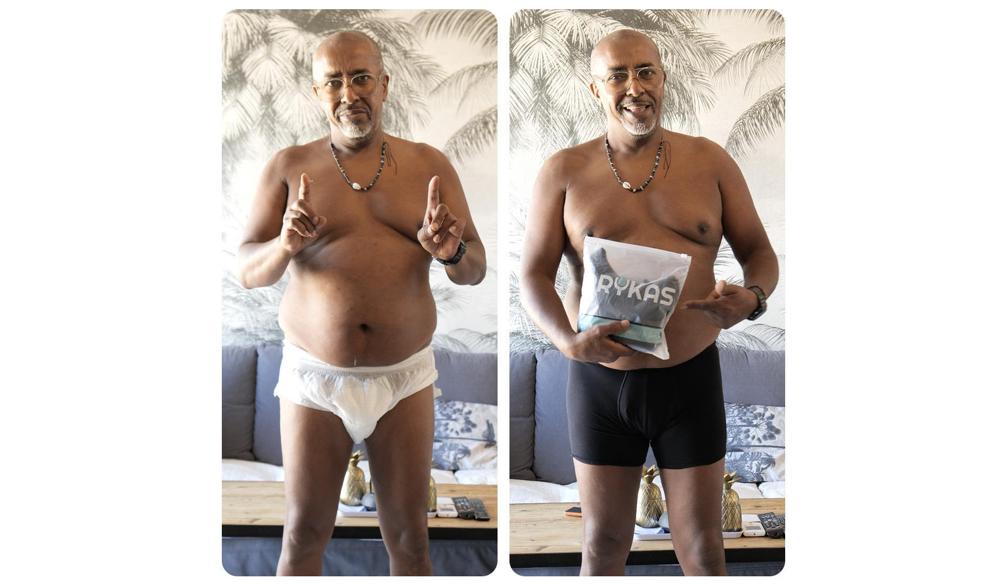Why Men Should Prioritise Physiotherapy and Rehab After Sports Injuries

Injuries are a part of life for many Australian men. Whether from weekend footy, gym sessions, or an accidental twist on the trail. But what happens after the injury matters just as much as how it occurred. Too often, men “tough it out,” skipping proper rehabilitation in favour of a quick return to sport or work. Research shows that a staggering number of male athletes return to sport without completing proper rehabilitation, setting themselves up for a cycle of re-injury and chronic pain that could have been prevented.
Sports physiotherapy isn't just about getting back to your pre-injury state; it's about emerging stronger, smarter, and more resilient than before. It's about understanding your body, preventing future injuries, and maintaining peak performance well into your later years. In this comprehensive guide, we'll explore why every man should prioritise professional rehabilitation after a sports injury and how modern solutions like mobile physiotherapy services are making recovery more accessible than ever.
Common Sports Injuries in Men and Why They're on the Rise
Australian men are passionate about their sports, whether it's AFL, rugby, cricket, or the growing popularity of CrossFit and martial arts. However, this enthusiasm often comes with a price. The most common sports injuries affecting men include:
-
ACL Tears
This remains the most feared injury among athletes, particularly in sports involving sudden direction changes. These knee injuries can sideline players for 6-12 months and often require surgical intervention followed by extensive rehabilitation.
-
Hamstring Strains
This injury is increasingly common, especially among weekend warriors who jump from sedentary desk jobs to intense physical activity without proper conditioning. These injuries have a notoriously high recurrence rate when not properly rehabilitated.
-
Shoulder Dislocations
This frequently occurs in contact sports and can lead to chronic instability if not addressed comprehensively. The shoulder joint's complexity requires specialised knowledge to restore full function.
Why Are Injuries Increasing?
Several factors contribute to the rising incidence of these injuries among men. The "weekend warrior" phenomenon sees many blokes cramming a week's worth of exercise into Saturday and Sunday, often without adequate preparation or recovery time. Age-related changes in joint mobility and muscle elasticity increase vulnerability, while poor technique and inadequate warm-up routines compound the risk.
Perhaps most significantly, men's cultural tendency toward risk-taking behaviour and competitive spirit often overrides caution. The traditional "tough it out" mindset, while admirable in some contexts, becomes counterproductive when it prevents proper injury management and recovery.
What Actually Happens in Physiotherapy?
Professional physiotherapy follows a structured, evidence-based approach that far exceeds simply "resting until it feels better." Understanding the five distinct phases of rehabilitation can help men appreciate why each stage is crucial for optimal recovery.
The Acute Phase (0-72 Hours Post-Injury)
This focuses on controlling pain and inflammation immediately following injury. This isn't just about ice packs and anti-inflammatories. Physiotherapists use specific techniques to manage swelling, protect healing tissues, and begin gentle movements that promote circulation without causing further damage.
The Subacute Phase (Days to Weeks Later)
This emphasises restoring normal movement patterns and flexibility. As pain decreases, the focus shifts to regaining range of motion through targeted stretching, manual therapy, and progressive exercises. This phase is critical for preventing the development of compensatory movement patterns that can lead to future injuries.
Strength and Conditioning
This represents the rebuilding phase, where muscles are progressively loaded to restore power, endurance, and coordination. This isn't generic gym work. It's specific to the injured area and the demands of your sport or activities.
Return to Sport
This involves functional training that mimics the movements and intensities you'll encounter when returning to activity. This phase includes agility drills, sport-specific skills, and psychological preparation for returning to competition.
Maintenance
This focuses on preventing future injury and managing any chronic issues that may have developed. This ongoing phase is often overlooked but is crucial for long-term success.
What makes modern physiotherapy particularly effective is its individualised approach. A mobile physiotherapist can assess your specific needs, lifestyle, and goals to create a tailored program that fits your schedule and circumstances. They utilise various tools and techniques, from manual therapy and specialised taping methods to advanced strength testing and movement analysis.
The Consequences of Skipping or Rushing Rehab
The statistics are sobering: men who skip structured rehabilitation are significantly less likely to return to their pre-injury sport and face a substantially increased risk of re-injury compared to those who complete their prescribed program. For example, studies show that athletes who complete rehabilitation and meet objective discharge criteria are nearly six times more likely to return to pivoting sports, while those who do not complete rehab have a markedly higher chance of re-injury and failure to return to sport.
This isn’t just about returning to sport; it’s about quality of life, work capacity, and long-term health. Short-term consequences of inadequate rehabilitation include persistent pain, reduced performance, and the frustration of repeated setbacks that can persist for years.
The long-term implications are even more concerning. Inadequately rehabilitated injuries often lead to chronic pain conditions and early-onset osteoarthritis. For instance, a knee injury sustained in your thirties can manifest as daily pain and mobility limitations in your fifties and sixties. Beyond the physical consequences, chronic pain and repeated injuries take a psychological toll, increasing risks of depression, anxiety, and a sense of lost identity when injury prevents participation in beloved activities.
Why Men Avoid Rehab and Why That Needs to Change
Despite the clear benefits, many men resist or prematurely abandon rehabilitation programs due to traditional gender norms that discourage seeking help or admitting vulnerability. The stereotype of masculine stoicism suggests that "real men" should handle pain and adversity independently, making it difficult to accept that professional help is necessary for optimal recovery. Practical barriers like time constraints, treatment costs, and misinformation about rehabilitation also contribute to poor program adherence.
The solution lies in reframing rehabilitation as a performance enhancement tool rather than a sign of weakness, similar to how elite athletes routinely work with physiotherapists and specialists. Just as recreational athletes can benefit from the same professional approach, the emergence of mobile physiotherapist services has significantly reduced practical barriers. These services bring treatment directly to your home or workplace, eliminating travel time and scheduling conflicts while normalizing professional rehabilitation support.
How Mobile Physiotherapy Makes Rehab More Accessible
The evolution of healthcare delivery has brought significant innovations to physiotherapy, with mobile services leading the charge in accessibility and convenience. A mobile physio melbourne brings professional treatment directly to your location, whether that's your home, office, or local gym. This approach is particularly valuable for men with busy schedules or those whose injuries temporarily limit their mobility. Instead of navigating traffic to reach a clinic, potentially aggravating your injury, treatment comes to you.
Mobile physiotherapy services often provide more personalised care than traditional clinic settings. The one-on-one attention allows for detailed assessment of your home environment, work setup, and daily activities. This comprehensive understanding enables more targeted interventions and practical recommendations for injury prevention. For those eligible for NDIS support, mobile physiotherapy services can be particularly beneficial, providing professional treatment without the barriers of transportation or clinic accessibility.
Prevention Is Power: Rehab as a Long-Term Health Strategy
The most progressive approach to physiotherapy views it not as a response to injury but as a proactive health strategy. Regular physiotherapy sessions, even when not injured, can identify and address movement restrictions, muscle imbalances, and biomechanical issues before they lead to injury. This preventive approach is particularly valuable for men over 30, when age-related changes in flexibility, strength, and recovery capacity become more apparent.
Monthly or quarterly sessions with a mobile physiotherapist can serve as a "tune-up" for your body, similar to regular car maintenance. The integration of physiotherapy into a broader health and fitness routine pays dividends in performance and longevity. Understanding how your body moves, where your limitations lie, and how to address them proactively can extend your athletic career and maintain your quality of life well into your later years. Body maintenance should be viewed as an investment in your future self; the time and money spent on regular physiotherapy sessions pale in comparison to the costs of chronic pain, repeated injuries, and reduced mobility in later life.









